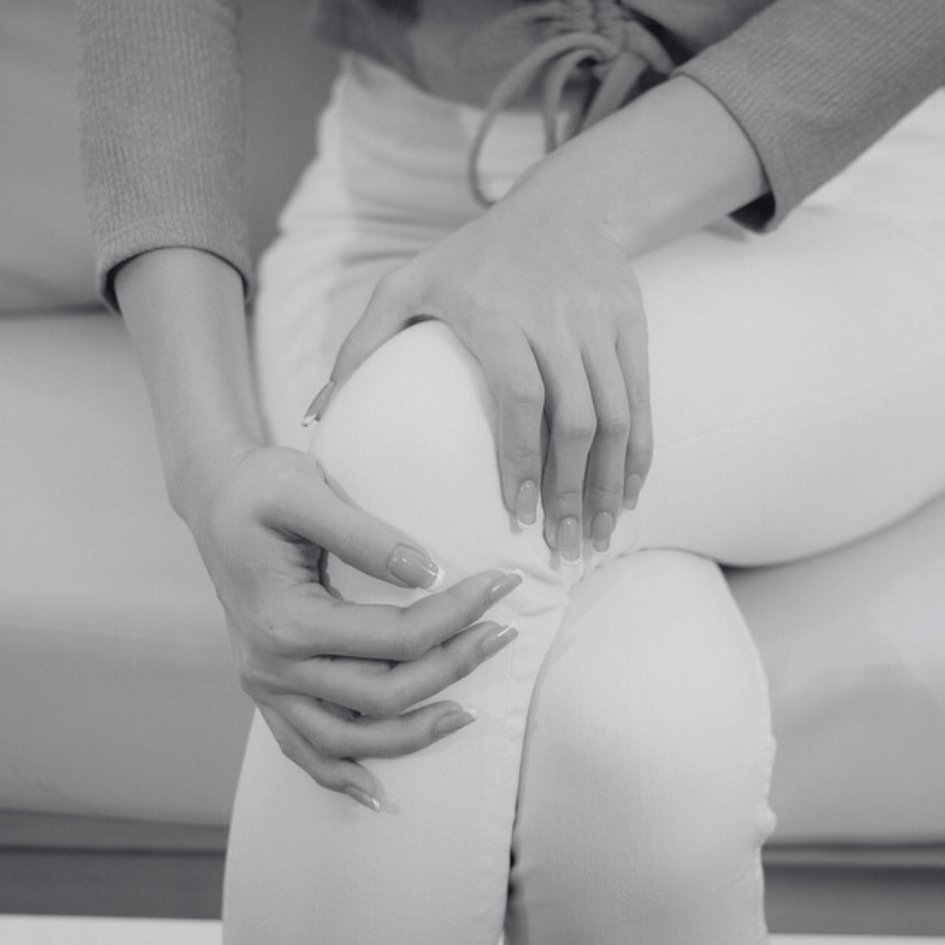
How to Avoid Knee Replacement Surgery: What Every 50-Year-Old Should Know
Learn how to avoid knee replacement with simple habits that protect your joints through strength, movement, and long-term knee care.
Earlier this week, I spoke with Jackie—a warm, determined woman just three weeks out from knee replacement surgery.
She’s done everything by the book: attending physical therapy three times a week, completing her exercises at home, staying consistent, and doing everything her care team has recommended.
But her knee still won’t bend past 85 degrees.
Now her physical therapist is warning her that if things don’t improve soon, she may need an MUA—a Manipulation Under Anesthesia, where the patient is sedated and the surgeon forces the knee to bend. It’s often seen as a last resort for those who aren’t making expected progress.
Jackie is devastated.
She’s exhausted, frustrated, and overwhelmed. She cries often and told me she wishes she had never gone through with the surgery in the first place.
And unfortunately, she’s not alone.
I hear from people like Jackie all the time. People who believed that knee replacement would be the answer to their chronic pain and limited mobility. People who trusted the system, followed instructions, and still ended up with setbacks, unexpected procedures, or regrets.
As a health professional, these stories weigh heavy on my heart.
And the more I hear them, the more convinced I am that we need to change the way we approach surgery—and recovery.
Here’s the hard truth: Jackie should have been told that her limited range of motion before surgery could drastically affect her recovery afterward.
If your knee isn’t bending well before surgery, it’s likely to struggle after surgery, too. Scar tissue, inflammation, and pain can make it even harder to get back on track. That’s why we always recommend something called “prehab”—a strategic, pre-surgical exercise and mobility plan designed to prepare your body for the trauma of surgery.
Jackie also should’ve had access to education about how to optimize her body in the months leading up to surgery:
But she wasn’t given that information. And now she’s left wondering what went wrong.
Now let’s take it a step further.
What if Jackie’s knee pain could have been managed without surgery at all?
What if simple lifestyle changes like:
….could have bought her more time? Or even spared her from surgery altogether?
We don’t talk about those options enough.
For many patients, surgery can feel like the only path forward—especially when pain starts interfering with daily life. But in many cases, people are rushed into surgery before trying other evidence-backed strategies that might improve their condition.
Jackie’s frustration is a sentiment echoed by many recovering from knee surgery. While physical therapy and medication are standard post-operative protocols, emerging research suggests that diet may play a pivotal role in recovery.
A 2022 feasibility study published in BMC Musculoskeletal Disorders explored the effects of a telehealth-delivered anti-inflammatory diet on individuals with symptomatic knee osteoarthritis. Participants followed a diet rich in whole foods like fish, fruits, vegetables, nuts, seeds, and olive oil, while limiting processed foods and refined carbohydrates. The study found that:
Building on this, the 2024 FEAST randomized controlled trial, detailed in BMJ Open, aims to compare the effects of an anti-inflammatory diet with a standard low-fat diet on knee pain, function, and quality of life in individuals aged 45–85 with symptomatic knee osteoarthritis. This study emphasizes:
These studies suggest that incorporating anti-inflammatory foods into your diet could be a valuable adjunct to traditional recovery methods. For those like Jackie, exploring dietary changes might offer an additional avenue for improving knee function and overall well-being.
If you’re dealing with knee pain, this is something worth trying.
This meal is simple, nourishing, and packed with ingredients that research shows can help reduce inflammation—things like salmon, olive oil, leafy greens, and colorful veggies. These foods have been shown to support joint health and may even help improve mobility and function over time.
Why does this matter? Because for many people, managing knee pain isn’t just about exercises or medication—it’s also about how you fuel your body.
You don’t have to overhaul everything. But starting with one good, supportive meal can make a difference.
Here’s one of my favorites:
Anti-Inflammatory Salmon Bowl Recipe (NTI School)
It’s quick, easy to make, and a great place to start if you’re trying to take more control of your knee health.
I’m not here to scare you or tell you that surgery is always the wrong choice.
Sometimes it’s the right path. Sometimes it’s life-changing.
But you deserve full information. You deserve to understand what your body needs, what your options are, and how to stack the odds in your favor—before and after surgery.
That’s why I do what I do.
To provide clear, compassionate guidance to people like Jackie—and people like you—who just want to feel better, move better, and live without being sidelined by their knees.
Whether you’re preparing for surgery, recovering from one, or trying to avoid it altogether—this newsletter is for you.
Each month, I share:
I can’t promise a miracle fix.
But I can promise you this: when you’re empowered with knowledge, you make better choices. And that alone can change everything.
Let’s take this journey together.

Learn how to avoid knee replacement with simple habits that protect your joints through strength, movement, and long-term knee care.

Discover the subtle ways knee pain affects daily life and learn practical strategies for managing knee pain naturally through strength, mobility, and early action.

Knee stiffness after 40? Learn why it happens and how movement, hydration, and strength training can help keep your knees flexible, strong, and pain-free.

Build a safer winter routine while recovering from knee replacement surgery. Learn how cold weather affects healing and how to protect your new joint.

Discover how hydration supports knee joint health, eases stiffness, and promotes healing during knee replacement recovery.